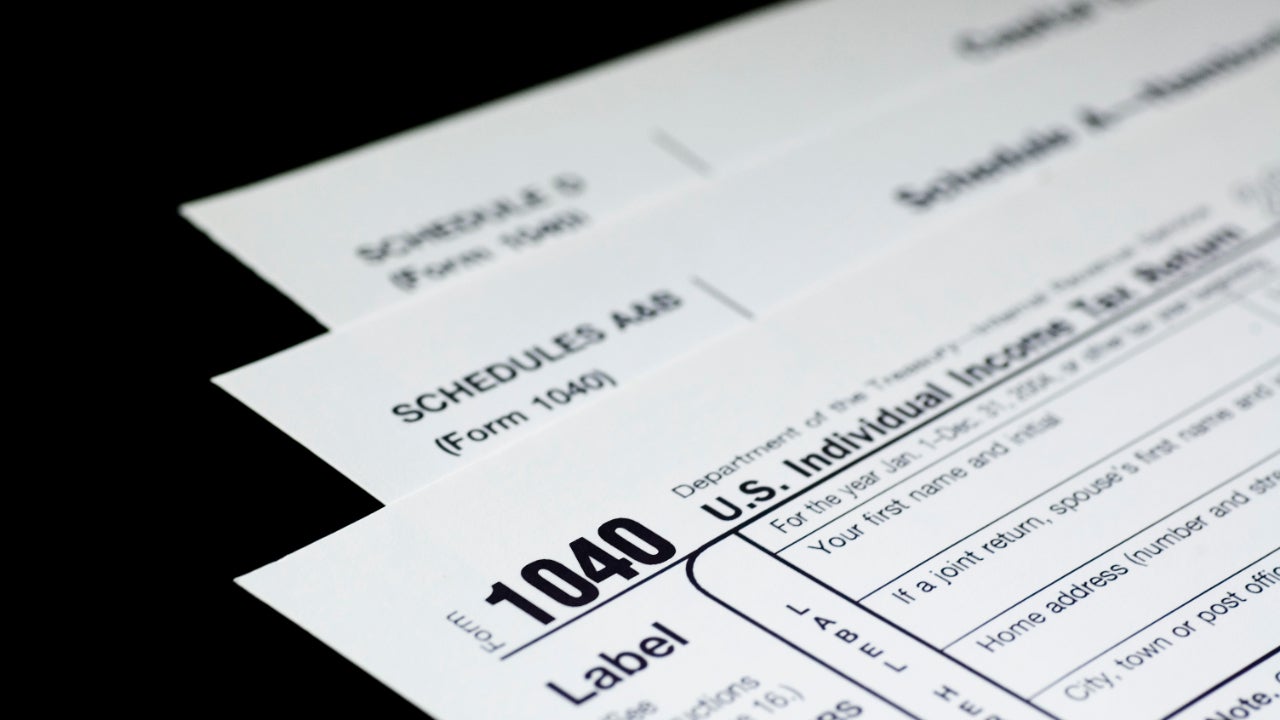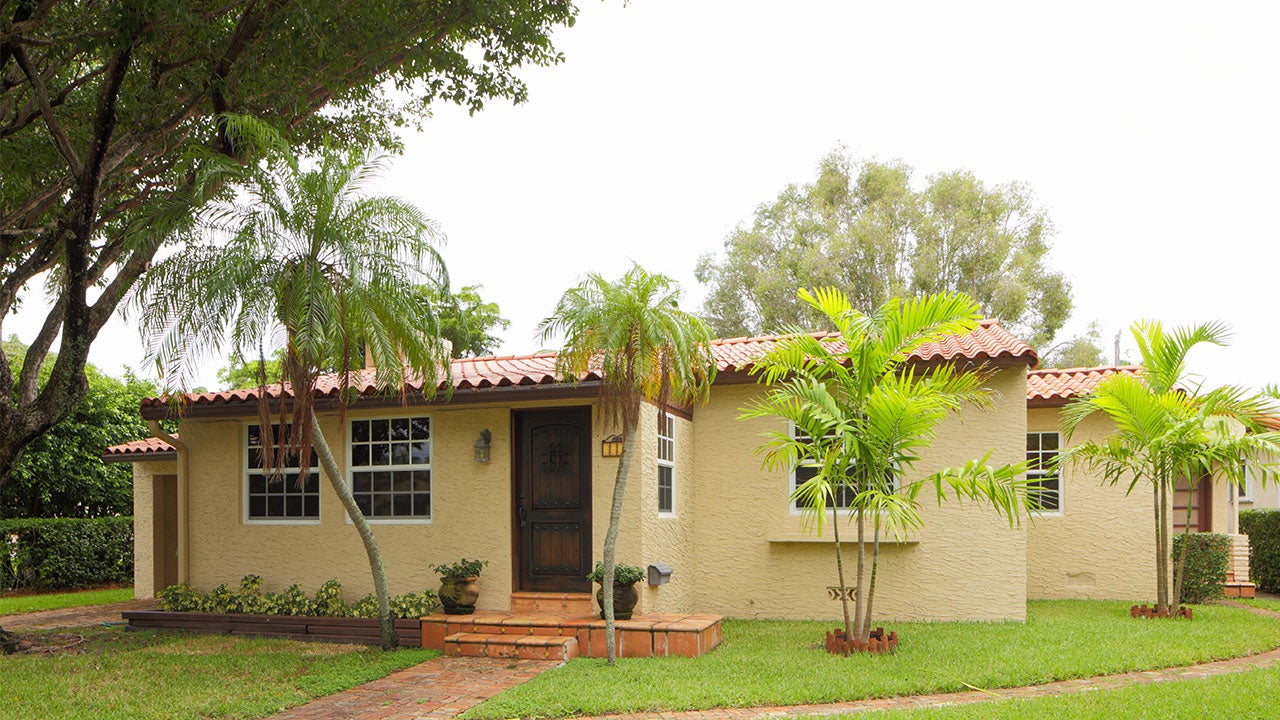Buying a house in Florida: A how-to

Thinking about moving to Florida? Join the party. Data from the U.S. Census Bureau shows that the Sunshine State has ranked in the top spot out of all 50 states for net migration — the number of people moving in versus moving out — for the past five years. With that many people looking for places to call their own, it’s important to arrive with a solid understanding of how to buy a house in Florida.
How to buy a house in Florida: A checklist
Decide where to live in Florida
Florida covers more than 65,000 square miles, so you’ll need to think about what you’re looking for in a location. Do you want to be close to the Atlantic? The Gulf? Or would you prefer somewhere further inland? Are you after the cosmopolitan energy of Miami, or a calmer, retirement-style vibe? If you aren’t tied to a particular location for work, be sure to look at the entire state to compare a range of lifestyles and price points.
Cost of living
As you think about housing in Florida, be sure to consider how other necessities, like food, transportation and utilities, will affect your monthly budget. Use Bankrate’s Cost of Living Calculator to get a sense of how much money you need to enjoy life in Florida’s major metro areas. The range is wide — for example, the cost of living in Tampa and St. Petersburg is 18 percent lower than it is in Miami.
Best places to live in Florida
There are loads of cities, towns and villages to choose from, but you can start your search with Bankrate’s official best places to live in Florida. From fast-growing Tampa to remote worker–friendly Cape Coral, the top five markets offer a balance of great job opportunities and plenty of relaxing ways to enjoy your off-hours.
Your home buying budget
Florida offers something for just about every affordability level, so pick a spot where your budget can put you within reach of the type of home and neighborhood you want. As a starting point for your budget, aim to spend no more than 28 percent of your monthly income on your housing expenses. This will leave enough to cover other expenses, pay off debts and save for your long-term needs. Use Bankrate’s Housing Affordability Calculator to get a picture of your budget.
Tips for buying a house in Florida
Home values
Home prices in Florida are doing exactly what they’ve been doing in most places around the country: rising fast. The median sales price in the state was $410,000 in April 2022, according to Florida Realtors — that’s a 21.8 percent increase over the same time the year before.
However, prices are hyper-localized, so research the specific cities you are considering. In Tallahassee, for example, median home prices are lower — $299,000 — and rising at a slower pace than in places like Naples, where the median sales price is more than $875,000.
Mortgage rates
As they have everywhere, mortgage rates in Florida have risen quite a bit since record lows at the onset of the pandemic. You’ll want to compare multiple lenders to see who can offer you the best deal. Keep in mind that you can find lower mortgage rates with shorter loan terms; 15-year mortgages, for example, have lower rates than 30-year mortgages.
The length of time isn’t the only factor that impacts your mortgage rate. How much you need to borrow is important, too. In most places, your loan will be considered a jumbo loan if you borrow more than $647,200. However, there are exceptions, in especially pricey areas. Be sure to consider loan limits in the area you want to call home. If you cross into jumbo territory, you may need to make a larger down payment, have additional cash reserves and/or pay a higher rate.
Things to know about buying a house in Florida
- Property taxes: You won’t pay state income taxes in Florida, but you will pay taxes on your new home. According to the Tax Foundation, Florida homeowners pay 0.91 percent of the value in annual property taxes. Be sure to ask the seller for the annual property tax bill from the previous year to estimate what you’ll pay once you own the home.
- Dual agency: Florida does not allow dual agency — in which a real estate agent represents both the buyer and the seller in a transaction.
- Seller’s disclosure: A seller in Florida is required to inform you of all facts that can affect the value of the property that you cannot see or do not know about. This disclosure — perhaps informing you of a past pest problem, for example — can be made verbally or in writing. This is crucial information for you to consider when buying a property, so you can ask your attorney to mandate that the disclosure is made in writing.
- Attorneys: Speaking of real estate attorneys, you don’t have to have one in the state of Florida. You could review the contract and finish the deal on your own. However, buying a home is a huge investment that comes with loads of legal language you may not understand. In the grand scheme of things, spending a bit more money for professional legal advice and expertise is a wise investment.
- Closing costs: In addition to a down payment, be prepared to cover a range of closing costs to finalize your purchase. In Florida, the average home sale comes with $8,551 of closing costs.
-
Climate and weather considerations: Whenever you buy a new home, you need to pay to protect it. In Florida, that can be very hard due to the potential for hurricanes. In fact, some insurance companies have stopped issuing new homeowners insurance policies in Florida due to the potential for massive costs from hurricane and storm damage. Additionally, portions of the Florida coastline are at higher risk of flooding due to rising sea levels. So, don’t let the beauty of a waterfront property overwhelm you: Estimate your insurance costs before making an offer.
How much house can I afford in Florida?
In addition to the considerations that every prospective homeowner must think about in Florida, your unique financial situation will determine whether you should buy a house there. If you are confident that you will stay in Florida for enough time to break even on your closing costs, and you are in good financial condition to score a low mortgage rate, buying a house can be one of the smartest decisions you can make.
Saving for a down payment in Florida
First-time homebuyers
If you have never owned a home before (or at least not in the past three years), your status as a first-time homebuyer can put you in the running for some valuable assistance that makes purchasing a home less daunting. The Florida Housing Finance Corporation — also known as Florida Housing — offers a range of first-time homebuyer programs.
Down payment assistance
Worried about coming up with a down payment to buy a house in Florida? There are also plenty of down payment assistance sources that can help you manage that big expense. And if you qualify as a low- or moderate-income borrower, there are also programs specifically designed to put home ownership closer to your reach.
Down payment calculator
The size of your down payment has major consequences: How much money you need to borrow, how much you’ll pay each month, how much interest you’ll pay over the lifetime of the loan. However, you don’t have to make a huge down payment. With good credit, you might be able to put down just 3 percent on a conventional loan or 3.5 percent on an FHA loan. Use Bankrate’s Down Payment Calculator to see how different amounts will affect your monthly budget in Florida.
Get preapproved for a mortgage
No matter what kind of Florida home you want to buy, getting preapproved is the most important step. Preapproval will give you a clear picture of how much you can afford to borrow, and it can also help demonstrate to sellers that your offer is serious.
Finding the best lender
The mortgage offer you’ll receive from one lender will not be identical to what you’ll see from another. Banks, credit unions and mortgage companies all have different criteria that impact the terms they can offer borrowers. Start by considering the best mortgage lenders in Florida, and make sure to expand your search to include community banks in your area. Compare multiple offers to make sure you are getting the best deal.
Finding the best local real estate agent in Florida
A real estate agent is your trusted guide through the home buying process. Agents can help you understand the market, point you toward properties that meet your needs and prepare a competitive offer when you’re ready to make a move. Don’t just settle on the first one you meet. Ask around for referrals from friends or family members, and take a look at reviews from other borrowers about their experiences with agents you’re considering. Interview several, and don’t be afraid to ask questions.
Start house hunting and make an offer
Once you have a preapproval letter in hand and a savvy agent by your side, it’s time to get into the real fun: finding your new home. Online searching can give you a sense of what’s available in different neighborhoods and at different price points, but you can count on your real estate agent to know when new properties hit the market. And in Florida, you’ll want to be ready to move fast — properties go quickly in most places here. Your agent can help you understand how other homes in the area have sold so you can put together a competitive offer.
Get a home inspection and appraisal
After your offer is accepted, it’s time to make sure that the property won’t wind up causing you loads of headaches and costing you loads of money. Find a home inspector — your agent will likely have some recommendations — to conduct a thorough review of the property. The inspection will identify any major issues with electrical wiring, plumbing, the roof, the HVAC system and other important areas of the property where problems could be hiding.
You will also need to get an appraisal to make sure that you have agreed to pay a reasonable amount for the home. Any lender will require an appraisal to protect their interests: If you default on the loan, the lender needs to know that it can recoup its losses.
Close on your new Florida home
The lead-up to closing day includes a lot of waiting and a lot of back-and-forth as your lender reviews your finances. Be responsive, and don’t make any major changes with your financial situation — leaving your job or opening a new credit card, for example. The timeline from your offer to closing day might take up to two months, so be patient. Just before closing you’ll perform a final walk-through, to be sure the property is in the state you expected. And then, be ready to sign a mile-high stack of documents and hand over a big check (certified or cashier’s; personal checks are generally not accepted). Now, take a breath and smile: You own a home in Florida.
FAQs
-
Maybe. Besides considering your personal lifestyle and finances, before you buy a home in Florida, it’s important to consider environmental issues. How could a potential rise in sea level impact the property value? A recent report in the Tampa Bay Times indicated that Florida homes at greater risk of flooding may potentially lose between 5 and 15 percent of their value by 2030. However, there are loads of reasons why buying a home in Florida is indeed worth it. The state will continue to be a vacation destination, so buying a house now can translate to a rental property down the road. And in terms of long-term decisions, Florida is one of the top retirement destinations. Buy now, and you’ll be able to continue soaking in the Sunshine State when you stop working.
-
Things move fast in this market. Since so many people want to buy homes in Florida, the pace is quick — when you find a place you like, you need to be prepared to pounce. The median time to contract here is just eight days, according to data from Florida Realtors.
-
That depends largely on location — small inland towns will be cheaper than waterfront property in Miami. It also depends what type of home you want to buy. The median price for single-family homes in the state was $410,000 as of April 2022, according to Florida Realtors. However, the median price for a condo or a townhome was $310,000.
-
Not necessarily. Some conventional loans will let you make a down payment of just 3 percent of the purchase price of a home, and if you are approved for an FHA loan, you can make a down payment of 3.5 percent of the purchase price. So, if you don’t have a large chunk of savings for your down payment, don’t let that scare you away from trying to become a Florida homeowner.
Why we ask for feedback Your feedback helps us improve our content and services. It takes less than a minute to complete.
Your responses are anonymous and will only be used for improving our website.






